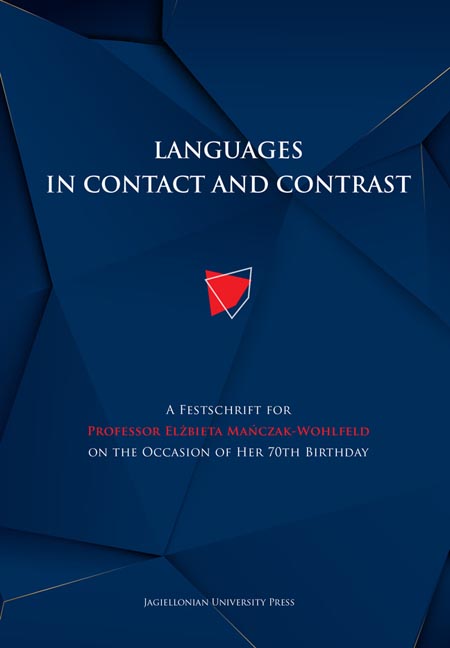 Languages in Contact and Contrast
Languages in Contact and Contrast Published online by Cambridge University Press: 14 October 2023
Introduction
It has become commonplace to associate the dominance of English in the world with the process of globalisation. In this respect, Haarmann argues that the link is fairly superficial but that, nonetheless, it contains so much truth that it is acceptable to regard English as the linguistic motor of globalisation (2002: 153). In contrast to earlier contact situations, English now affects the lives of almost all people, be it at home, in the workplace, in leisure activities, or on holiday. Its presence needs to be acknowledged, whether we like it or not (Haarmann 2002: 152).
Not only do the attitudes towards the socio-economic effects of globalisation on the different national economies differ, but also the attitudes towards the linguistic impact of English on national languages and cultures.
While for a long time, both inside and outside academia, Anglizismus ‘anglicism’ has been the prevalent term to designate lexical borrowings from English in German, more recently pejorative terms such as Denglis(c)h and similar blends reveal a negative attitude towards borrowings from English and even bluntly express dismay against linguistic “hybridisation” in their morphological structure.
In the historical perspective, it is interesting to note that at the end of the 19th century pejorative and chauvinistic terms such as Engländerei ‘anglomania’ and Entwelschung ‘de-alienation’ arose when borrowings from English became fashionable. Eisenberg (2011: 49) regards the growing influence of English on German and other European languages at the end of the 19th century as part of the first wave of globalisation, when not only German but also other languages were vying for the status of the world language.
The paper sketches the discursive traditions out of which these terms have originated, concluding that some of the resentment expressed in terms like Engländerei and Denglis(c)h can be attributed to the dominant position of English as an emergent and as an established global language.
Research questions
Nowadays, English functions as the single most important donor language of anglicisms to other languages, and also as a global lingua franca. More and more languages are coming into contact with English in either way.
To save this book to your Kindle, first ensure [email protected] is added to your Approved Personal Document E-mail List under your Personal Document Settings on the Manage Your Content and Devices page of your Amazon account. Then enter the ‘name’ part of your Kindle email address below. Find out more about saving to your Kindle.
Note you can select to save to either the @free.kindle.com or @kindle.com variations. ‘@free.kindle.com’ emails are free but can only be saved to your device when it is connected to wi-fi. ‘@kindle.com’ emails can be delivered even when you are not connected to wi-fi, but note that service fees apply.
Find out more about the Kindle Personal Document Service.
To save content items to your account, please confirm that you agree to abide by our usage policies. If this is the first time you use this feature, you will be asked to authorise Cambridge Core to connect with your account. Find out more about saving content to Dropbox.
To save content items to your account, please confirm that you agree to abide by our usage policies. If this is the first time you use this feature, you will be asked to authorise Cambridge Core to connect with your account. Find out more about saving content to Google Drive.